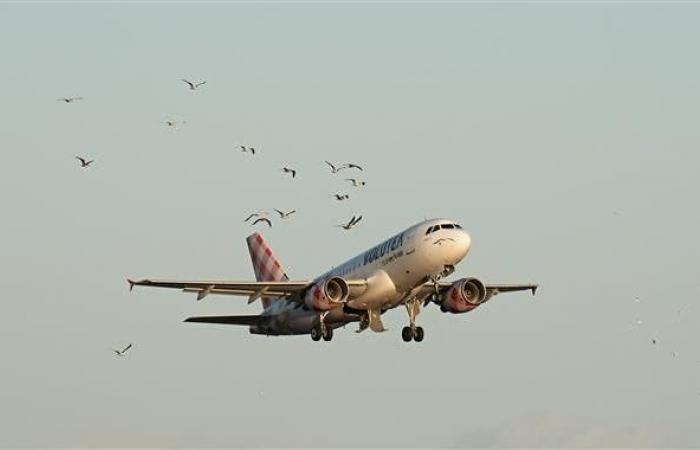Collisions with birds, a possible cause of Sunday's deadly Boeing crash in South Korea, are the cause of many air accidents around the world, even if most are only minor.
Collisions with birds, a possible cause of the deadly crash of a Boeing of the low-cost airline Jeju Air on Sunday in South Korea, are at the origin of numerous air accidents around the world, even if most are only minor .
Since 1988, bird strikes have caused 262 human deaths and destroyed 250 aircraft worldwide, according to the Australian Aviation Wildlife Hazard Group (AAWHG), a specialist task force established by Australian civil aviation. These figures do not take into account the Korean crash, the latest report of which shows 179 deaths.
This type of event is becoming more and more frequent as air traffic continues to increase. In the United States alone, 291,600 collisions between wild animals and civilian aircraft were reported between 1990 and 2023, according to a database set up by the Federal Aviation Administration (FAA). In mainland France, the Directorate General of Civil Aviation (DGAC) lists 600 each year during commercial flights.
These collisions cause more than $1.2 billion in damage to aircraft each year, according to the AAWHG. They occur most of the time during takeoffs and landings, at fairly low altitudes, between 0 and 50 feet (15 meters). Mid-air collisions are much rarer but not impossible. In France, a tourist plane crashed in 2021 in the Seine-et-Marne department after hitting a cormorant in flight.
One of the most famous cases of aviation incidents involving birds dates back to January 2009, when the pilot of a US Airways Airbus A320 with 155 occupants managed to calmly land on the Hudson River in New York. York after a collision with a group of wild geese.
Effarouchements
“In most cases, hitting a bird does not lead to major accidents”however, tempers, on condition of anonymity, a former expert from the Bureau of Investigation and Analysis for Civil Aviation Safety (BEA), the French authority in charge of investigations following accidents involving civil aircraft. On average, serious animal collisions represent less than 8% of cases, with a decreasing trend in recent years, according to the DGAC.
Most of the damage is only material and consists of dents or a few impacts on the cabin. But when one or more birds “enter a reactor, the damage can be much more serious”especially if the compressor is damaged “which can cause the engine to malfunction or stop”explains the BEA expert.
The consequences can then have “impact on aviation safety or continued flight” leading to events like “engine shutdown, precautionary landing, aborted takeoff, return to terrain, delays”details the DGAC.
The risks increase depending on the size of the birds and their number, particularly during the migratory period. Bird debris or parts damaged by the collision can cause flames or a fire on the reactor. “But normally it doesn’t go so far as to break the entire hydraulic and electrical system of the plane”which allows the aircraft to be maneuvered and in particular to extend the landing gear, underlines the expert, recalling that the second reactor is supposed to take over if the other no longer works. The collision would have to have occurred on both reactors simultaneously, but “it’s extremely rare”note l’expert.
To protect against the risks linked to birds, aircraft manufacturers and airports have implemented a series of measures. They range from resistance tests of reactors by means of throwing dead chickens onto them to scare measures around airports such as the broadcasting of distress cries from birds or preventive shots in the air to keep away the birds. birds.
”
data-script=”https://static.lefigaro.fr/widget-video/short-ttl/video/index.js”
>






